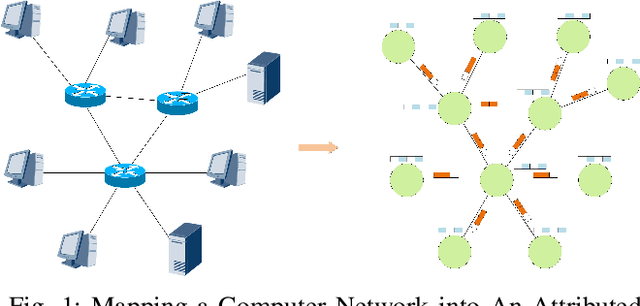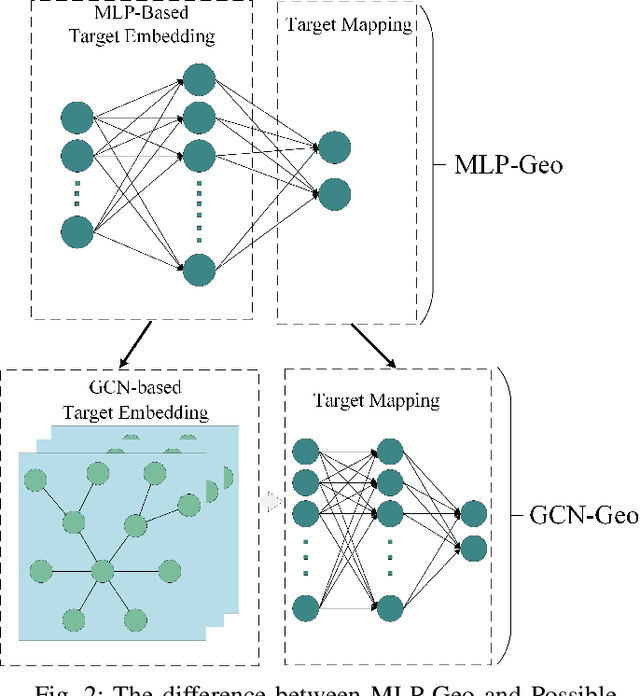Shichang Ding
GCN-Geo: A Graph Convolution Network-based Fine-grained IP Geolocation System
Jan 02, 2022



Abstract:Fine-grained IP geolocation systems often rely on some linear delay-distance rules. They are not easy to generalize in network environments where the delay-distance relationship is non-linear. Recently, researchers begin to pay attention to learning-based IP geolocation systems. These data-driven algorithms leverage multi-layer perceptron (MLP) to model non-linear relationships. However, MLP is not so suitable for modeling computer networks because networks are fundamentally graph-typed data. MLP-based IP geolocation systems only treat IP addresses as isolated data instances, forgoing the connection information between IP addresses. This would lead to sub-optimal representations and limit the geolocation performance. Graph convolutional network (GCN) is an emerging deep learning method for graph-typed data presentation. In this work, we research how to model computer networks for fine-grained IP geolocation with GCN. First, we formulate the IP geolocation task as an attributed graph node regression problem. Then, a GCN-based IP geolocation system named GCN-Geo is proposed to predict the location of each IP address. GCN-Geo consists of a preprocessor, an encoder, graph convolutional (GC) layers and a decoder. The preprocessor and the encoder transform raw measurement data into the initial graph embeddings. GC layers refine the initial graph node embeddings by explicitly modeling the connection information between IP addresses. The proposed decoder can relieve the converging problem of GCN-Geo by considering some prior knowledge about target IP addresses. Finally, the experimental results in three real-world datasets show that: GCN-Geo clearly outperforms the state-of-art rule-based and learning-based baselines on all three datasets w.r.t. average, median and max error distances. This work verifies the potential of GCN in fine-grained IP geolocation.
 Add to Chrome
Add to Chrome Add to Firefox
Add to Firefox Add to Edge
Add to Edge